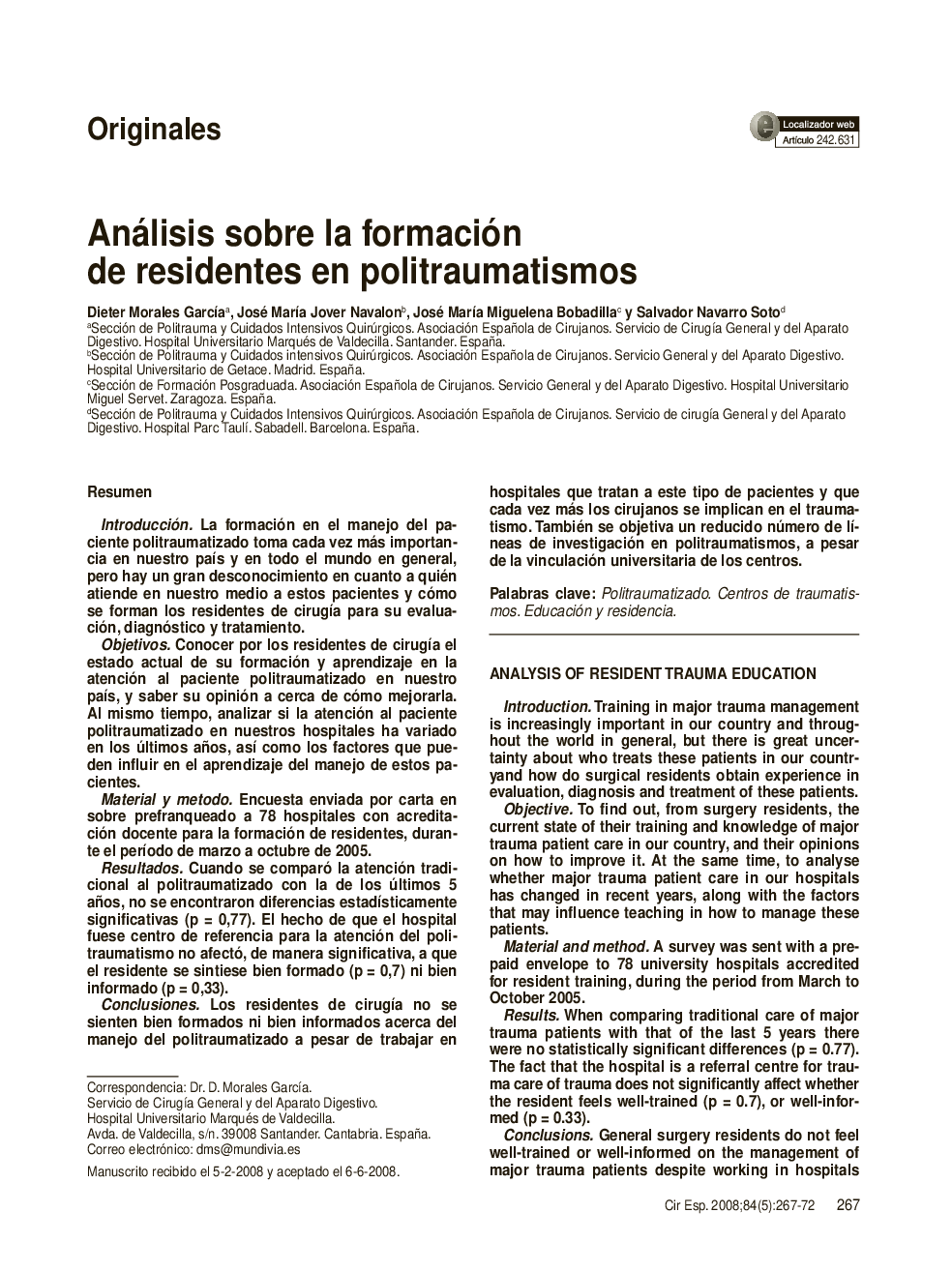| Article ID | Journal | Published Year | Pages | File Type |
|---|---|---|---|---|
| 4253489 | Cirugía Española | 2008 | 6 Pages |
ResumenIntroducciónLa formación en el manejo del paciente politraumatizado toma cada vez más importancia en nuestro país y en todo el mundo en general, pero hay un gran desconocimiento en cuanto a quién atiende en nuestro medio a estos pacientes y cómo se forman los residentes de cirugía para su evaluación, diagnóstico y tratamiento.ObjetivosConocer por los residentes de cirugía el estado actual de su formación y aprendizaje en la atención al paciente politraumatizado en nuestro país, y saber su opinión a cerca de cómo mejorarla. Al mismo tiempo, analizar si la atención al paciente politraumatizado en nuestros hospitales ha variado en los últimos años, así como los factores que pueden influir en el aprendizaje del manejo de estos pacientes.Material y metodoEncuesta enviada por carta en sobre prefranqueado a 78 hospitales con acreditación docente para la formación de residentes, durante el período de marzo a octubre de 2005.ResultadosCuando se comparó la atención tradicional al politraumatizado con la de los últimos 5 años, no se encontraron diferencias estadísticamente significativas (p = 0,77). El hecho de que el hospital fuese centro de referencia para la atención del politraumatismo no afectó, de manera significativa, a que el residente se sintiese bien formado (p = 0,7) ni bien informado (p = 0,33).ConclusionesLos residentes de cirugía no se sienten bien formados ni bien informados acerca del manejo del politraumatizado a pesar de trabajar en hospitales que tratan a este tipo de pacientes y que cada vez más los cirujanos se implican en el traumatismo. También se objetiva un reducido número de líneas de investigación en politraumatismos, a pesar de la vinculación universitaria de los centros.
IntroductionTraining in major trauma management is increasingly important in our country and throughout the world in general, but there is great uncertainty about who treats these patients in our countryand how do surgical residents obtain experience in evaluation, diagnosis and treatment of these patients.ObjectiveTo find out, from surgery residents, the current state of their training and knowledge of major trauma patient care in our country, and their opinions on how to improve it. At the same time, to analyse whether major trauma patient care in our hospitals has changed in recent years, along with the factors that may influence teaching in how to manage these patients.Material and methodA survey was sent with a prepaid envelope to 78 university hospitals accredited for resident training, during the period from March to October 2005.ResultsWhen comparing traditional care of major trauma patients with that of the last 5 years there were no statistically significant differences (p = 0.77). The fact that the hospital is a referral centre for trauma care of trauma does not significantly affect whether the resident feels well-trained (p = 0.7), or well-informed (p = 0.33).ConclusionsGeneral surgery residents do not feel well-trained or well-informed on the management of major trauma patients despite working in hospitals that treat these patients and an increasing number of surgeons are involved in the trauma. There are few lines of research into multiple trauma, despite the linkage with university centres.
